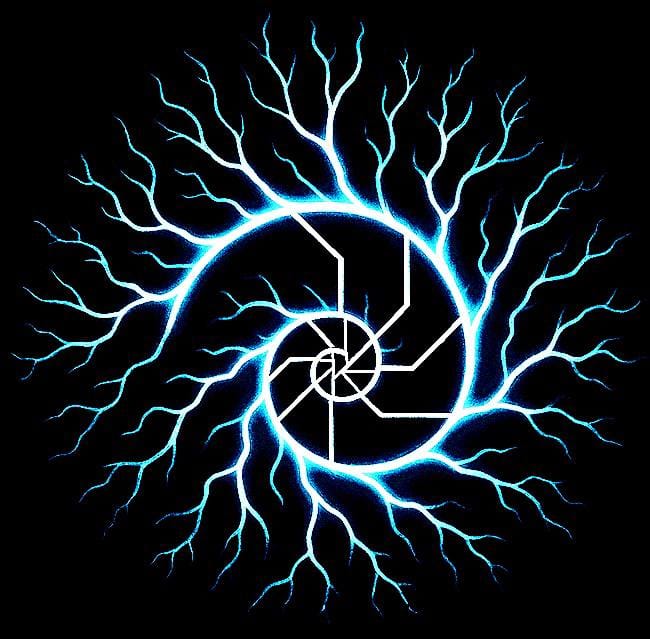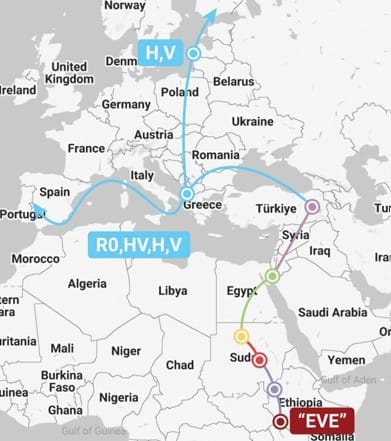The Imperial Operating System: From Rome to the Global Present

Introduction: The Same Machine, New Skins
History is usually told as progress: from the cradle of civilization, to Rome’s grandeur, to Medieval Christendom, to the Enlightenment, to our modern, globalized world. But when we strip away the marble façade and the myths of “civilization,” a different story emerges. What we see is not a straight line of progress, but the same system rebooted over and over again. Rome didn’t vanish — its logic migrated. Medieval Christendom didn’t break with empire — it absorbed it. And our global order today? It runs on the very same code.
Call it the Imperial Operating System. Or, more bluntly, the Patriarchal Operating System. It is not a conspiracy of bloodlines; it is a replicating pattern of power that spreads because it works — for the few at the top. It extracts, it justifies, it suppresses alternatives, and it keeps rebooting under new skins.
The Ancient Blueprint
The core modules were already present in the first cities of Sumeria five thousand years ago.
- Surplus capture: irrigation agriculture created grain surpluses stored in temples and palaces.
- Bureaucracy: writing began not with poetry but with accountancy, clay tablets tallying grain and labor.
- Priest-kings: rulers fused divine legitimacy with managerial power.
- Patriarchy: inheritance and property rights required male dominance.
- Slavery: debt and war captives became forced labor.
Egypt, Babylon, Assyria, Persia — each ran variations on this code. Rome simply industrialized it.
Rome’s Upgrade
Rome’s brilliance was not its cruelty but its standardization.
- Universal law codes stretched across territories.
- Citizenship extended selectively to co-opt conquered elites.
- A professional standing army and road networks integrated the empire.
- Spectacle — gladiatorial games, triumphs, public executions — bound people emotionally to the system.
The Roman Empire was the first fully continental deployment of the Imperial Operating System.
Christianity: The Moral Rebrand
Early Christianity had been anti-imperial — a faith of the poor and marginalized. By Constantine’s time, it was reborn as an imperial asset.
- Temples became churches; priests became bishops; the emperor became Christ’s vicar.
- Census became baptism rolls; tax became tithe.
- Crucifixion became excommunication and hellfire.
What had been resistance was now infrastructure. The empire no longer needed legions at every door; it colonized consciences instead.
Medieval Christendom: The Deeper Integration
After Rome’s political shell collapsed in the West, the Church carried the OS forward.
- Bishops functioned as governors; monasteries as banks and depots.
- Time itself was colonized: bells, feast days, and fasting calendars regimented daily life.
- Space was mapped into parishes, dioceses, and pilgrimage routes.
- Crusades extended the logic outward: expansion, extermination, forced conversion.
- Inquisition extended it inward: thought and belief policed as treason.
Rome’s OS was now running on Christian hardware.
Modernity: Secular Masks, Same Code
The Enlightenment did not destroy the OS; it secularized it.
- The state took over surveillance and legibility: censuses, passports, prisons, school timetables.
- Capitalism refined extraction: wage labor replaced chattel slavery, but surplus still flowed upward.
- Colonialism globalized the machine: railroads, missions, and markets brought every corner of the planet under the empire’s gaze.
Today’s global order is the OS scaled to planetary level.
- Data is the new grain: platforms harvest and store every movement and click.
- Corporations and banks are the new senatorial class.
- IMF, WTO, and NATO are the new imperial councils.
- “Development,” “innovation,” “sustainability” serve as the new moral covers.
- Social media and mass entertainment are the new circuses.
The Continuity and the Difference
The Imperial Operating System has persisted for millennia because it works.
- It rewards elites who adopt it with power.
- It suppresses or erases alternatives.
- It rewrites memory, telling each reboot as “progress.”
- It colonizes interior life, turning obedience into morality.
What changes are the skins: gods, Christ, Reason, Progress, Growth. But the modules remain: hierarchy, extraction, moral cover, suppression, spectacle.
Slavery Then, Wage-Labor Now
Are we “slaves”? Not literally. Most people today are not owned outright as property. But the metaphor illuminates continuities.
- We sell our time to survive.
- Debt binds generations, as ancient debt bondage once did.
- Surplus flows upward; risk flows downward.
- Property is protected above life.
- Alternatives are delegitimized.
The chain is subtler, softer, more interior. But the direction of flow is the same.
Cracks in the Code
No system is eternal. Rome rotted, Christendom fractured, colonial empires unraveled. Today’s version faces its own contradictions.
- Climate breakdown destabilizes the extractive base.
- Digital networks can surveil — but also coordinate dissent.
- The moral story of endless growth is unraveling.
Every reboot has eventually hit its limits. Ours is no different.
Seeing the Code, Writing a Fork
What we inherit today is not “civilization’s progress,” but a machine that has learned to wear many skins while repeating the same pattern. Rome still lives in our laws, our bureaucracies, our corporations, our rituals. Christendom still lives in our moral codes, our hierarchies, our missionary language of “development.”
Deconditioning history means seeing this continuity without illusions. Only then can we begin to imagine forks in the code — systems built not on hierarchy and extraction, but on reciprocity, commons, resilience, and freedom.
The Imperial Operating System is not destiny. It is just software. And software can be rewritten.


Comments ()